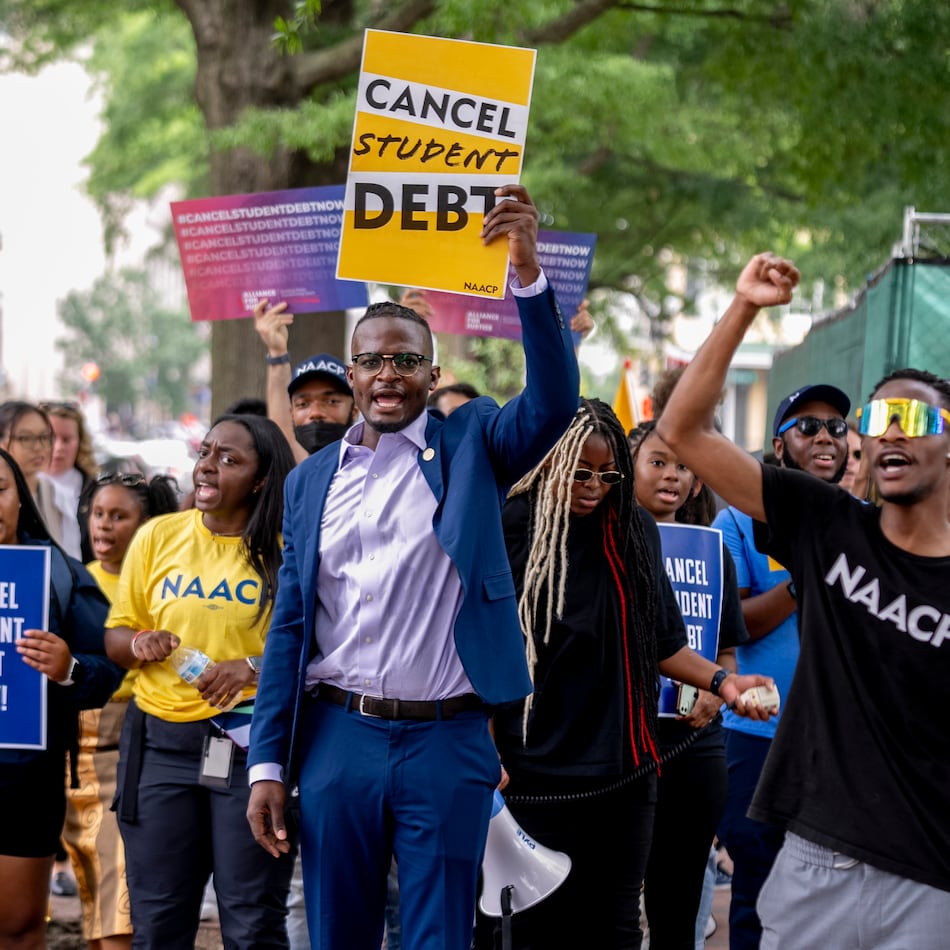ATLANTA (AP) — The state of Georgia said during Thursday arguments that a COVID-19 pandemic-related agreement shielding certain people on death row from execution should no longer apply, but death penalty defense attorneys said it's still valid because some of its conditions have yet to be met.
The agreement said executions wouldn’t be scheduled for a certain group of people on death row until six months after three conditions had been met: the expiration of the state’s COVID-19 judicial emergency, the resumption of normal visitation at state prisons and the availability of a COVID-19 vaccine “to all members of the public.”
Lawyers for the state contend that all of the conditions have been met. While the state’s judicial emergency was lifted in June 2021, defense lawyers for people on death row argue that the COVID-19 vaccine isn’t available to “all members of the public” because infants under 6 months old aren’t eligible, and that visitation at state prisons has not returned to normal.
Executions in Georgia stopped in 2020 because of the pandemic. Death penalty cases continued to wind their way through the court system, and as people exhausted their appeals, they became eligible for execution.
A committee of a judicial task force on COVID-19 in early 2021 instructed lawyers for people on death row and the state attorney general’s office to come up with terms under which executions could safely resume. The two sides reached the agreement in April 2021.
Fulton County Superior Court Judge Shukura Ingram heard arguments Thursday on whether the vaccine requirement has been met. The prison visitation issue will be addressed separately.
Attorney Sarah Brewerton-Palmer, arguing for the death penalty defense lawyers, said the language of the agreement is “unambiguous and clear” and that “all members of the public” does not include an age restriction. The state could have tried to limit the vaccine requirement to adults or set an expiration date for the conditions, but it didn't, she said.
The court must “measure the parties' intent by the language they agreed to,” Brewerton-Palmer said.
Logan Winkles, a lawyer for the state, argued that the vaccine is “in a real medical sense and in a legal sense” available to newborns because pregnant women can be vaccinated and can pass on antibodies to their babies.
He also said the goal of the agreement was to establish when it would be safe to resume executions amid a pandemic and that the agreement's fundamental purpose was met when the vaccine was readily available to people who wanted it.
Ingram said the two sides gave her “a lot to think about” and that she would consider their arguments and issue a ruling.
The agreement only applied to people on death row whose requests to have their appeals reheard were denied by the 11th U.S. Circuit Court of Appeals while the judicial emergency was in place. The agreement was to remain in effect through Aug. 1, 2022, or one year from the date on which the conditions were met — whichever was later.
The legal fight over the agreement arose from a lawsuit filed when state officials set a May 2022 execution date for Virgil Delano Presnell Jr. The Federal Defender Program, which represents Presnell, said the state had violated the agreement because the conditions hadn't all been met.
Based on that argument, a Fulton County Superior Court judge halted the execution less than 24 hours before it was to take place, and the Georgia Supreme Court ruled in December 2022 that the agreement was a binding contract.
In the years before the COVID-19 pandemic, Georgia generally moved quickly to schedule an execution date as soon as a person sentenced to death had exhausted his appeals. From 2010 to 2020, the state executed 30 people, including nine in 2016 and five in 2015.
People on death row who are not covered by the agreement have since become eligible for execution. One of them, Willie James Pye, was put to death last March.
The attorney general's office declined to comment on why the state hasn't sought execution warrants for other people who are eligible and not protected by the agreement. A Department of Corrections spokesperson declined to say whether the agency is fully ready and equipped to carry out executions right now.
Keep Reading
The Latest
Featured


